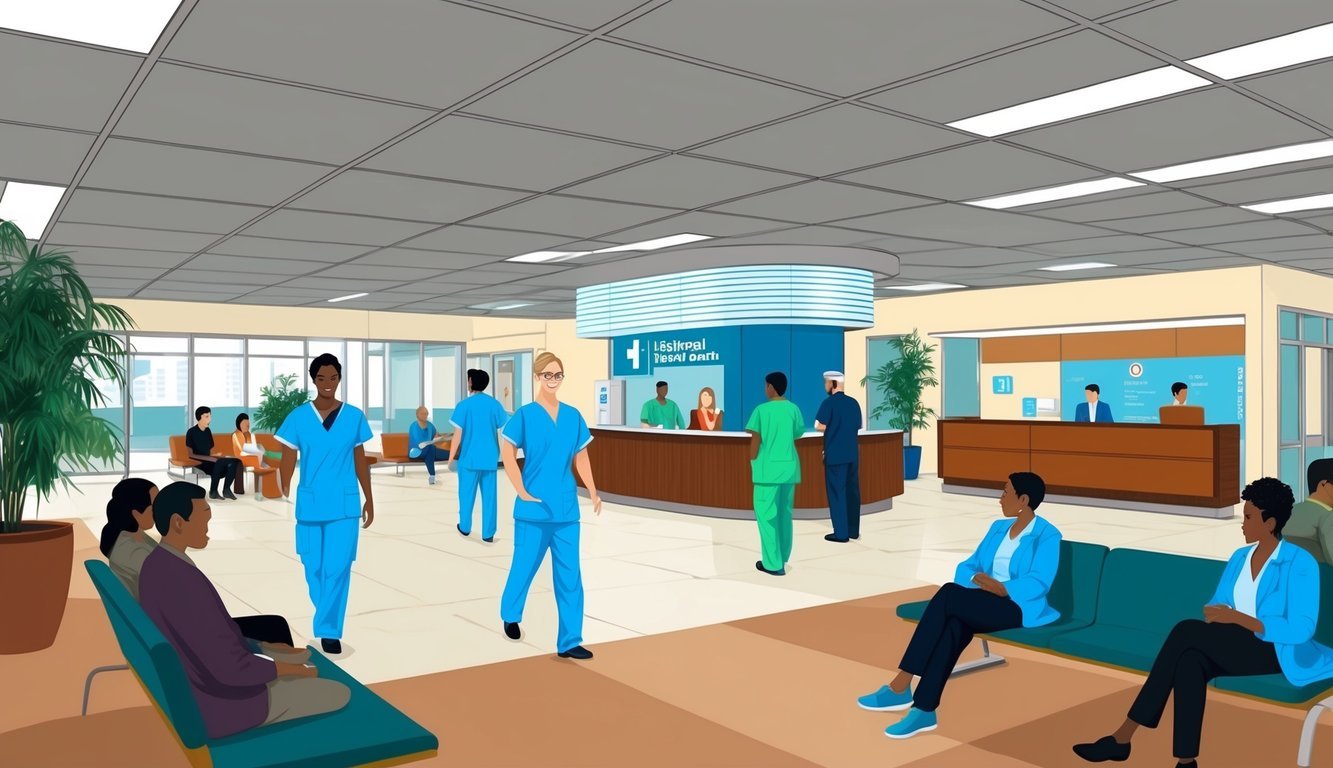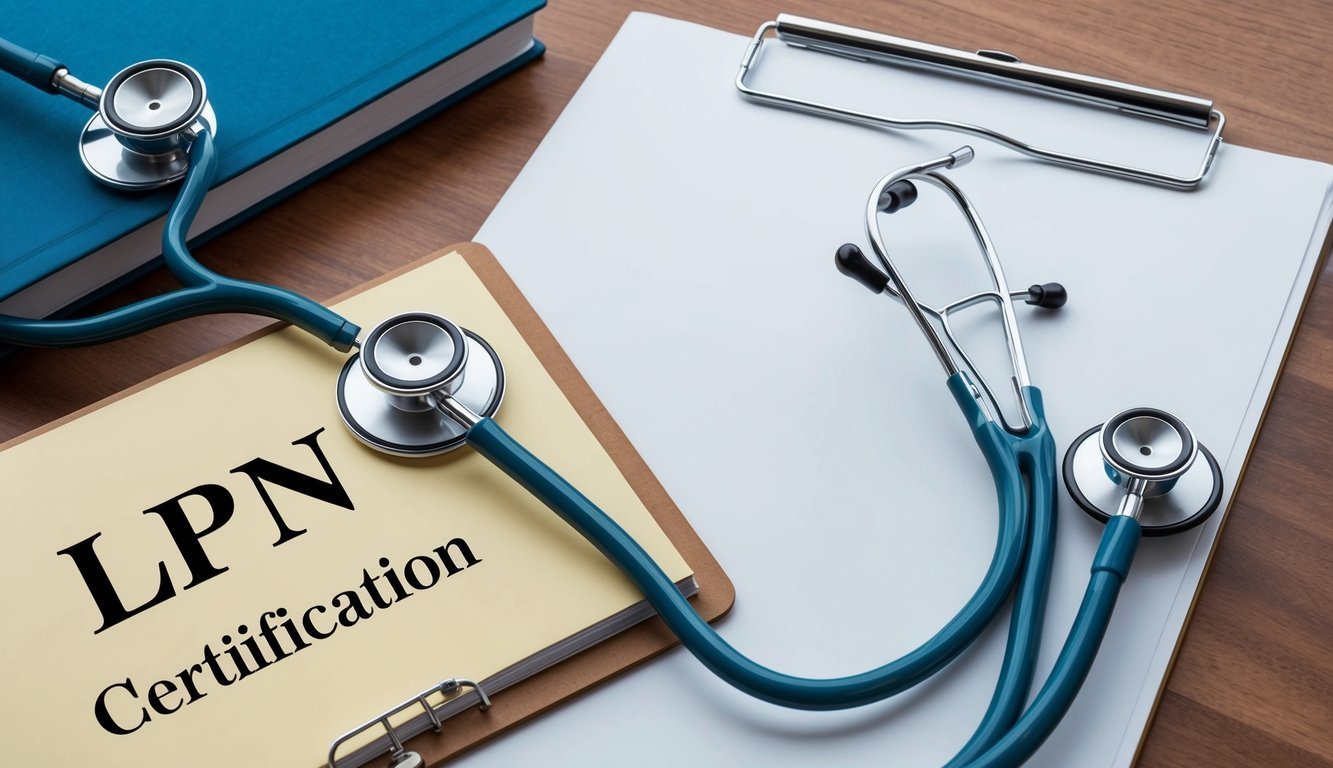LPN certification is a crucial step for those aspiring to become licensed practical nurses.
This certification not only validates your skills and knowledge in nursing but also opens doors to numerous career opportunities in healthcare. Completing an accredited practical nursing program and passing the NCLEX-PN exam will lead you to become a certified LPN, allowing you to provide essential care to patients in various settings.
As you embark on your nursing career, understanding the requirements for LPN certification is vital.
It typically involves a one-year educational program at a community college or technical school.
Gaining this certification ensures you are equipped with the necessary competencies to excel in your role.
Navigating the path to LPN certification can be straightforward with the right resources.
Organizations such as the American Nurses Credentialing Center provide essential information on certification policies and procedures.
By leveraging these resources, you can focus on advancing your nursing career confidently and successfully.
Understanding LPN Certification
LPN certification involves several critical steps and guidelines that ensure you meet the standards required to practice as a Licensed Practical Nurse.
Familiarizing yourself with the licensure process, the NCLEX-PN exam, and the role of accreditation is essential.
Licensure Overview
To become a Licensed Practical Nurse (LPN), you must first complete an accredited LPN program.
This program typically takes about one year and includes both classroom instruction and clinical experience.
After graduation, you need to apply for licensure in your state.
Each state has its own requirements, but generally, you will need to pass the National Council Licensure Examination for Practical Nurses (NCLEX-PN).
Additionally, you may need to provide proof of education, complete a criminal background check, and possibly fulfill continuing education requirements.
Examining the NCLEX-PN
The NCLEX-PN is a standardized exam that tests your knowledge and skills in nursing practice.
This exam is computer-adaptive and changes in difficulty depending on your answers.
It covers a range of topics, including:
- Safe and Effective Care Environment
- Health Promotion and Maintenance
- Psychosocial Integrity
- Physiological Integrity
You must achieve a passing standard to obtain your LPN license.
Preparing for this exam typically involves review courses, practice tests, and study groups.
Familiarize yourself with the test format through resources like NCLEX-PN Test Plan for more detailed information.
The Role of Accreditation
Accreditation is crucial in ensuring that your LPN education meets quality standards set by recognized accrediting bodies.
Completing a program accredited by organizations such as the Accreditation Commission for Education in Nursing (ACEN) is often required to sit for the NCLEX-PN.
Accredited programs provide a comprehensive curriculum that not only prepares you for the exam but also makes you more competitive in the job market.
Check if your chosen program is accredited by visiting ACEN’s website.
Quality education and credible accreditation can significantly impact your career trajectory and job opportunities within the healthcare field.
LPN Education Pathways
LPN education involves a structured pathway that begins with foundational preparations and progresses through formal training and certification opportunities.
Understanding these steps will help you make informed choices to advance in your nursing career.
High School Preparation
To begin your journey towards becoming a licensed practical nurse, you typically need a high school diploma or a GED.
Focus on coursework in science, math, and health-related subjects, as these will provide a strong foundation for your nursing education.
Consider participating in extracurricular activities such as health clubs or volunteer work in healthcare settings.
These experiences can bolster your resume and provide valuable insights into the nursing profession.
Technical School vs. Community College
Your training options include technical schools and community colleges, both of which offer accredited practical nursing programs.
| Institution Type | Duration | Key Features |
|---|---|---|
| Technical School | 12-18 months | Focused, hands-on training |
| Community College | 1-2 years | Broader education, including general studies |
Technical schools usually provide a more intensive, clinical-based experience.
Community colleges might offer additional courses in related fields, which can enhance your education and job prospects.
Regardless of the path you choose, ensure that the program is accredited and prepares you for the NCLEX-PN exam.
Continuing Education Opportunities
Upon completing your LPN program and obtaining licensure, you can further your career through continuing education opportunities.
Many states require ongoing education units to maintain your LPN license.
You can pursue specialty certifications in areas such as pediatrics, geriatrics, or pharmacology.
These certifications can enhance your skill set and make you more attractive to potential employers.
Participating in workshops, online courses, and conferences can also keep you updated on the latest in nursing practices.
Always check with your state’s nursing board for specific requirements and recognized programs to ensure you stay compliant.
The LPN Job Market

The job market for licensed practical nurses (LPNs) is dynamic and expanding, offering numerous opportunities across various settings.
Understanding the roles available, the impact of specialty certifications, and salary expectations will help you navigate this field effectively.
Exploring LPN Job Roles
LPNs can work in diverse environments, including nursing homes, hospitals, clinics, and home health care.
Each setting has its unique demands and responsibilities.
In nursing homes, for instance, you may provide daily care to residents, administer medications, and assist with personal hygiene.
In hospitals, LPNs often work under the supervision of registered nurses, assisting in patient care plans and monitoring vital signs.
Home health care settings allow for more personalized care, where you might serve patients with chronic illnesses in their homes, providing support and ensuring their comfort.
Specialty Certification and Advancement
Obtaining specialty certifications can significantly enhance your career prospects and earning potential.
Certifications such as IV Therapy or the Certified Hospice and Palliative Licensed Nurse (CHPLN) demonstrate expertise in specific areas of nursing.
These credentials may open doors to advanced roles or higher-paying positions.
For example, LPNs with specialty certifications often find opportunities in specialty clinics and palliative care, where they can leverage their skills in managing complex patient needs.
Understanding the LPN Salary Landscape
The average annual salary for licensed practical nurses is approximately $59,627, but this can vary based on factors such as location, experience, and specialization.
For instance, LPNs working in home health care may have different salary ranges compared to those in hospital settings.
Your salary can increase as you gain experience or move into specialized roles.
Exploring job boards and salary surveys can provide insights into potential earnings within your area, aiding in informed career decisions.
| Job Setting | Estimated Average Salary |
|---|---|
| Hospitals | $60,000 |
| Nursing Homes | $58,000 |
| Home Health Care | $55,000 |
| Specialty Clinics | $62,000 |
Day-to-Day Responsibilities of an LPN

As a Licensed Practical Nurse (LPN), your daily responsibilities encompass a wide range of patient care activities.
This includes administering medication, monitoring vital signs, and collaborating with the healthcare team to ensure optimal patient outcomes.
Administering Patient Care
You will play a critical role in administering direct patient care.
This involves tasks such as giving medications, which may include oral, injectable, or topical forms.
You are responsible for ensuring that the correct dosage is delivered on schedule.
Additionally, you will engage in wound care, managing dressings, and monitoring healing processes.
You’ll also perform routine checks of vital signs, such as blood pressure, pulse, and temperature, to identify any changes in a patient’s condition.
These responsibilities require both attention to detail and a strong understanding of each patient’s unique needs.
Patient Education and Interaction
Patient education is a vital part of your role.
You educate patients and their families about health management, medication adherence, and post-discharge instructions.
Communication is key; you must explain complex medical terms in a way that patients can easily understand.
Additionally, you may have to demonstrate procedures or the use of medical equipment.
Establishing a rapport with patients encourages them to ask questions and voice concerns, which can be essential for their health and recovery.
Collaborating with the Healthcare Team
Collaboration is crucial in your role as an LPN.
You will work closely with Registered Nurses (RNs), doctors, and other healthcare professionals to coordinate patient care.
You communicate patient observations, make recommendations, and assist with creating care plans.
Your input is valuable, as you have firsthand knowledge of patients’ daily needs and how they respond to treatments.
Participating in team meetings and case discussions enhances your ability to contribute to effective patient care strategies, ensuring a comprehensive approach to health care.
Transitioning from LPN to RN
Transitioning from Licensed Practical Nurse (LPN) to Registered Nurse (RN) opens numerous opportunities for career advancement and specialized practice.
Understanding the paths available can help you make an informed decision on your educational and career journey.
LPN-to-RN Bridge Programs
LPN-to-RN bridge programs are specifically designed to facilitate your transition to becoming a registered nurse.
These programs recognize the skills and knowledge you have gained as an LPN, allowing you to build upon them.
- Program Types: Options may include online, hybrid, and traditional classroom settings.
- Duration: Most programs can be completed in 1-2 years, depending on whether you pursue an associate’s or bachelor’s degree.
- Admission Requirements: Typical criteria include a valid LPN license, proof of prior education, and sometimes a minimum GPA.
You may consider programs such as those offered by Nurse.org and others that provide structured learning tailored for LPNs.
Long-Term Career Planning
It’s critical to think ahead about your career as an RN.
Consider your professional goals and areas of interest within nursing as you transition.
- Specialization: Registered nurses can specialize in areas like pediatrics, gerontology, or emergency care.
- Career Advancement: With an RN license, you will have opportunities for roles in management, education, or advanced practice nursing.
- Continuing Education: Staying current through continuing education or obtaining certifications is vital for career growth and adaptability.

